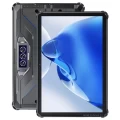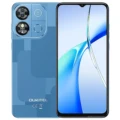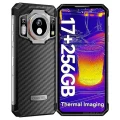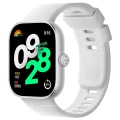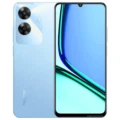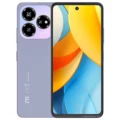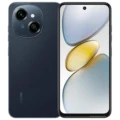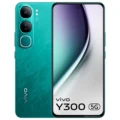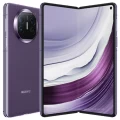Oukitel BT103
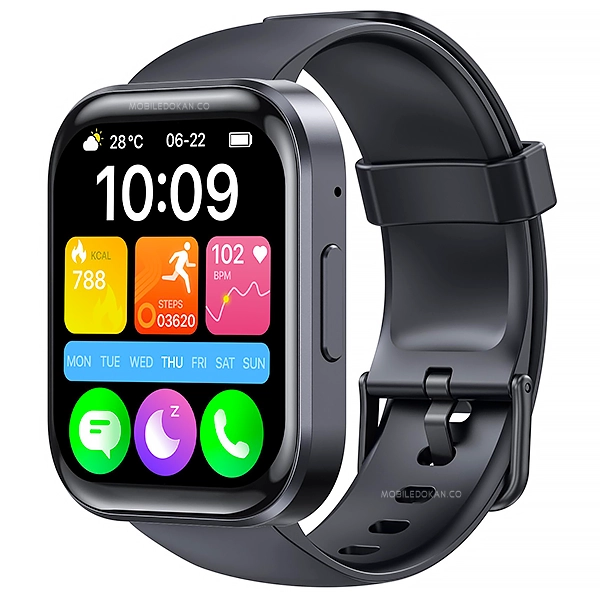


Available
Advertisement
Pro and cons
Pros
- 1.91-inch display, 320×380 pixels.
- Proprietary OS, Bluetooth 5.2.
- Heart rate, SpO2 sensors.
- 300mAh battery.
Cons
- TFT LCD display.
Specifications
Prices
| Global price The "global price" of a product or service is typically not expressed in a specific currency like dollars (USD), euros (EUR), or rupees (INR). Instead, global prices are usually discussed in terms of a commodity's or product's value on the international market, and these values can fluctuate based on various factors including currency exchange rates. | €35 |
| Expected price The expected price represents the anticipated cost of a product converted from major currencies like the Dollar, Euro, Yuan, and Rupee. | ৳4.500 |
Launch
| Announced | 2024, June |
| Status | Available. Released 2024, June |
Network
| Technology | No cellular connectivity |
| 2G bands It’s the 2nd generation mobile data communication technology. | N/A |
| 3G bands It is the 3rd generation mobile data communication technology. | N/A |
| 4G bands It is the 4th generation mobile data communication technology. | N/A |
| Speed | No |
Body
| Dimensions It's the size of the phone in format (H x L x W) and the volume of the phone where available. | 49.5 x 40 x 10.9 mm (1.95 x 1.57 x 0.43 in) |
| Weight | 100 g (3.53 oz) |
| SIM SIM (Subscriber Identity Module) is a small card that contains a mobile network subscriber's account information. This allows the phone to use the card to attach to a mobile network. The SIM card is most commonly associated with GSM and UMTS mobile networks. Moving a SIM card from one phone to another allows a subscriber to switch mobile phones without having to contact their mobile network carrier. SIM cards can also be used by a phone to store limited amounts of data, such as phone numbers and text messages. | No |
Display
| Type A number of display technologies and types used in mobile phones TFT (Thin Film Transistor), IPS (In-Place Switching), OLED (Organic Light Emitting Diode), AMOLED (Active-Matrix Organic Light-Emitting Diode), Super AMOLED (an even advanced version of AMOLED), Resistive Touchscreen (Resistive touchscreens contain two-layer of conductive material with a very small gap between them which acts as a resistance), Capacitive Touchscreen (Capacitive touchscreen technology consists of a layer of glass coated with a transparent conductor) | TFT LCD |
| Size The industry-standard way of representing display sizes is publishing their length in inches. The screen-to-body ratio is a measure that relates to the size of the screen bezels. The bigger the ratio, the smaller the bezels are, meaning the display takes up a larger area on the device's front. | 1.91 inches |
| Resolution Display Resolution is the measuring way of how much pixels does a display contains. A higher resolution means more pixels and more pixels provide the ability to display more visual information (resulting in greater clarity and more detail). | 320 x 380 pixels (~260 ppi density) |
| Features | Tempered glass |
Platform
| OS Every Mobile Phone system runs on a base software called Operating System (OS). Operating System controls all basic operations of the Mobile (such as smartphones, PDAs, tablet computers, and other handheld devices). The Operating System allows the user to install and run third party applications (apps), apps are used to add new functionality to the device. | Proprietary OS |
| Chipset It is a group of integrated circuits designed to perform one or more dedicated functions, often with real-time computing constraints, Popular smartphones are equipped with more advanced embedded chipsets that can do many different tasks depending on their programming. | - |
Memory
| Card slot A special slot for inserting a memory card for expanding your storage. It is a special slot for inserting a memory card. Memory cards allow you to expand the phone's built-in memory, A memory card (sometimes called a flash memory card or a storage card) is a small storage medium used to store data such as text, pictures, audio, and video, for use on small, portable or remote computing devices such as mobile phones, mp3 players, digital cameras. | No |
Camera
| Primary This term refers to the size of an image, usually in reference to a photo from a camera mobile phone. A megapixel means one million pixels. The resolution of camera phones is often measured in megapixels. For example, a 12-megapixel camera can produce images with 12 million total pixels. | No |
Sound
| Loudspeaker Loudspeaker is a small sound driver fitted within a mobile phone, which is used to produce sound. | No |
| 3.5mm jack A common connector for plugging in audio output or input. | No |
Connectivity
| WLAN Wireless Local Area Network (WLAN) is a method of distributing data wirelessly to a local area network practically to the internet. It is a popular wireless networking technology using radio waves to provide high-speed network connections that allow devices to communicate without cords or cables, Wi-Fi is increasingly becoming the preferred mode of internet connectivity all over the world. | No |
| Bluetooth Bluetooth is a wireless technology standard for exchanging data over short distances from fixed and mobile devices. It is a wireless communications technology for exchanging data between mobile phones, headsets, computers, and other network devices over short distances without wires, Bluetooth technology was primarily designed to support simple wireless networking of personal consumer devices. | 5.2 |
| NFC NFC (Near Field Communication) is a shorter range of high-frequency data transferring technology. It is a set of standards for smartphones and similar devices to establish peer-to-peer radio communications with each other by touching them together or bringing them into proximity, usually no more than a few inches. | No |
| FM radio FM broadcasting is a method of radio broadcasting using frequency modulation technology. | No |
| USB USB is a standard for a wired connection between two electronic devices, including a mobile phone and a desktop computer. | No |
| Infrared port IrDA (Infrared Data Association) is an old data sharing technology in the means of Infrared Port. It uses a beam of infrared light to transmit information and so requires a direct line of sight and operates only at close range. |
Features
| Sensors A sensor is a device, module, or subsystem whose purpose is to detect events or changes in its environment and send the information to other electronics. The specific input could be light, heat, motion, moisture, pressure, and location, The output is generally a signal that is converted to use in computing systems, a location sensor, such as a GPS receiver is able to detect the current location of your electronic device. | Accelerometer, heart rate, SpO2 |
Battery
| Type Cell phones run on various kinds of batteries depending on the manufacturer, phone size or shape, and features. There are basically four types of cell phone batteries Lithium Polymer (Li-Po), Lithium-Ion (Li-Ion), Nickel Metal Hydride, and Nickel Cadmium. | Non-removable Li-Po |
| Capacity The unit of capacity is milliamp-hours (mAh), which means 3000mAh can be put on the battery to discharge it in one hour. The battery capacity represents the maximum amount of energy that can be extracted from the battery under certain conditions. | 300 mAh |
More
| Made by | China |
| Color | Black, White |
Disclaimer
We do not guarantee that the information of this page is 100% accurate and up to date.
Oukitel BT103 Price in Bangladesh November 2024
The Oukitel BT103 smartwatch was available. Now, the Oukitel BT103 basic is the price available at 4500 Taka in Bangladesh. The General phone is available in Bangladesh in Black, White color variants.
| Model | Oukitel BT103 |
| Price | BDT. 4,500 |
| Display | 1.91″ 320×380 pixels |
| RAM | No |
| ROM | No |
| Release date | 2024, June |
Oukitel BT103 highlights
This Oukitel BT103 device has no camera on the back and no camera on the front side.
